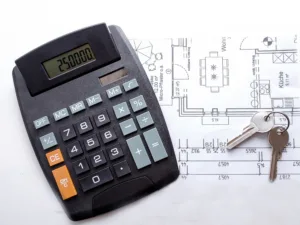Effective management of construction projects demands superior planning, organizational, and execution capabilities. For a project to reach successful completion, contractors need to collaborate intimately with developers to establish a clear understanding of the project’s scope. This process involves a synergy between professionals and suppliers, ensuring precise planning and execution of the project. Given the time-sensitive nature of the construction industry, accurate scheduling of project milestones and their related expenses is crucial. Contractors must devise a comprehensive construction budget and adhere to it strictly to guarantee the project’s success.
Table of Contents
What is a construction budget?
A construction budget is a financial plan outlining the estimated costs of a construction project. It includes all expenses expected to be incurred from the start to the completion of the project.
These expenses typically cover:
- Material costs
- Labor costs
- Equipment costs
- Services
- Utilities
- Permits and fees
- Design and architectural fees
- Site preparation expenses
- Subcontractor fees
- Contingency budgets
A construction budget is a critical tool for project managers, builders, and stakeholders to ensure the project is completed within the financial constraints set forth at the beginning. It helps in planning, tracking, and controlling the financial aspects of the construction project, enabling decision-makers to make informed choices about resource allocation, cost-saving measures, and project scope adjustments to stay on budget. Effective construction budgeting also involves regular monitoring and updating to reflect actual costs and adjustments needed due to changes in the construction project scope, material prices, or unforeseen challenges.
Why is a construction budget important?
A construction budget plays a pivotal role in forecasting the overall expenditure for any construction project, be it the erection of a new structure, the construction of a roadway, or the building of a bridge. This construction budget is carefully crafted by a general contractor, leveraging the expertise of professional estimators along with quotations from suppliers and subcontractors. It serves a critical function in financial planning for the client or developer, who could range from a private investor or a corporate entity to a governmental organization.
The intricacies of a construction budget are instrumental in defining the project’s timeline, the caliber of professionals employed, and the selection of technology and machinery. An intelligently formulated budget prioritizes pre-planning to enhance productivity and efficiency while managing indirect costs effectively.
Crafting Your Construction Budget
Devising a construction project budget can vary greatly, with experience often guiding the choice of method. A widely recognized and effective construction budget planning strategy involves categorizing expenses into hard and soft costs. Soft costs refer to any outlays not directly associated with the physical construction of the project. These encompass pre- and post-construction services or other intangible expenses, usually representing about 30 percent of the total construction budget.
Conversely, hard costs, often called “brick and mortar” expenses, comprise the remaining 70 percent of the construction budget. These costs are directly tied to the tangible aspects of construction, such as materials and labor, making them more straightforward to estimate and manage due to their fixed nature. Soft costs include all other expenses outside this realm, which are typically more challenging to predict due to the variable nature of service fees.
Segmenting your construction budget into these categories from the start enhances your construction budget management. It provides a more precise overview of expenses in both segments, facilitating the identification of any overlooked costs. This categorization allows for a more accurate determination of which costs are directly controllable by the project management team and which are more variable. This approach not only aids in financial planning but also in applying cost-control measures more effectively to different aspects of the construction project.
9 steps to plan a budget for a construction budget
Here are 9 critical aspects to consider when planning a budget for a construction project:
1. Land Acquisition Costs
The cost of acquiring property can significantly fluctuate based on its location and the scale of the construction project. In sought-after areas, the expense of land might constitute up to 60 percent of a project’s total budget, while in areas with lower demand, it might represent less than 10 percent. It’s critical to establish a realistic budget range for acquiring property, considering not only the price of the land but also associated costs such as real estate commissions, financing, and taxes, which collectively form the total investment.
From an accounting perspective, purchasing land is classified as a capital expense—a substantial investment expected to provide value for more than one fiscal year. The costs associated with acquiring land are a vital component of a construction project’s budget, as they play a significant role in determining the project’s ultimate profitability.
For new construction projects, the value of the land is expected to rise, making it essential to accurately assess its value at the outset. This initial valuation provides a benchmark to measure the added value resulting from the development, offering a clear perspective on the investment’s return for you or the client.
2. Costs for Professional Services
Professional consulting and ancillary services classified as soft costs are indispensable in the construction industry. The scope of your project will require many professional services and approvals to begin construction. While various fees accrue throughout the project, initial pre-construction costs include:
- Procurement of building and occupancy permits from municipal authorities and the costs for permit applications and facilitating transactions.
- Charges for surveying, as well as geotechnical or environmental assessments.
- Fees for architectural and design efforts, encompassing comprehensive master planning.
- Certification fees from professionals in structural, electrical, mechanical, or civil engineering.
- Expenses related to accounting, banking, and real estate transactions.
Securing detailed and accurate design plans is critical to fully understand the total cost of your project. These project plans delineate the scope of work, and the lack of detailed plans can lead to significant unforeseen costs. Accurate and well-defined drawings are essential to prevent budget discrepancies early in the project.
After project drawings and permits are approved and all pre-construction services are contracted, the project moves into the construction phase. Additional charges may apply at this point. Depending on the location, there may be a charge for the disposal of construction debris and waste. After construction, the project incurs additional costs for final inspection and accounting services that mark the completion of the project life cycle.
3. Materials
Some costs, like permits and design fees, are set in stone in construction. It’s challenging to negotiate these with local authorities or architects. However, the cost of materials is the area where you can adjust your budget and add value to your project. This is because contractors can build relationships with suppliers to negotiate better prices, particularly when buying in bulk or purchasing multiple materials from the same source.
Materials are often the most significant expense in any construction budget. It’s important to pay close attention to these costs. Remember, the quality of what you buy will reflect in the final project, so choose the best materials your budget allows. Unlike the fluctuating costs of services, material costs are stable, and suppliers can provide fixed quotes.
The materials you’ll need depend on what you’re building. For instance:
- For site preparation: You might need items for the groundwork like paving stones, pipes, and drainage systems. Costs for landscaping elements, such as plants, trees, and fertilizers, also fall under this category.
- For the building structure: Costs will include materials for the physical construction, like lumber for framing, roofing materials, insulation, systems for heating, ventilation, and air conditioning, as well as doors, windows, floors, drywall, paint, and more.
4. Labor Costs
Understanding your labor costs is key to creating an accurate and detailed construction budget. This includes the costs of hiring tradespeople, subcontractors, and equipment operators who are essential for the job.
Estimating the cost of labor can be tricky. It’s hard to know exactly how many hours will be needed to finish the work until the project starts. Yet, making these estimates is important to plan your construction budget and keep the project moving smoothly. Finding ways to make your team more efficient is crucial for keeping your construction projects profitable.
When planning your budget for labor, remember to account for all the costs related to employing people, such as:
- Hourly pay for both your direct employees and subcontractors.
- Workers’ compensation insurance and other payroll costs.
- Paid leave, including vacation and sick days.
- Time spent on tasks that don’t contribute directly to project progress, like rework or waiting periods, which a separate contingency budget might cover.
5. Equipment and Tools
Every construction job needs various tools and equipment, from small hand tools to large machinery. These items can be categorized as direct costs, like those required for demolition, clearing land, paving, or capital expenses if you already own them.
To determine the necessary equipment and tools, contractors should look at their materials and labor requirements lists. This will help them decide what they need to rent and how much of it. When renting, it’s essential to consider all related costs, which include:
- The rental price of the equipment
- Delivery charges
- Operational expenses, such as paying operators and additional labor
- Fuel costs
- Maintenance and repair responsibilities
It’s crucial to rent from a trustworthy supplier. A good supplier will help you pick the most suitable equipment and tools for your project and explain all the costs clearly from the start.
6. Project management
Every construction project needs a team of skilled and organized construction project managers. These project managers also need their own set of tools and supplies to do their work. This means that project management costs will cover the salaries of these team members and their office-related expenses. Costs for security personnel, safety equipment, and other support roles and materials are included in this category, too.
Expenses to think about include office rent, utilities, internet service, phone bills, and office supplies like paper, ink, and computers. While some of these costs are considered capital expenses—which are investments that benefit the project over time—it’s essential to include them in your construction budget to keep your project and business profitable.
Also, remember to account for any construction technology tools that help make your project more efficient. Many companies now use software for project management, accounting, and scheduling. These costs might not be directly tied to the physical building process, but they’re vital for completing the project efficiently.
7. Insurance and Bonds
Regardless of size, every construction project must have insurance and might need bonds. This means budgeting for insurance to cover any potential liabilities is a must. For example, professional liability insurance is a necessary cost you can’t skip. Depending on your project, you might also need to put down a deposit or get a bid bond. This is like a promise that your company will stick to its commitments.
For construction projects, especially those with the government, you might need payment and performance bonds. These are guarantees that everyone from subcontractors to material suppliers will get paid, helping to avoid any legal claims against the project. Also, if you’re part of any building or contractor groups, remember to include the cost of those memberships in your construction budget.
8. Utilities and Taxes
For your construction projects, you might need to set up utilities like gas, water, sewer, and electricity. These services have their own permit and connection fees, which you must include in your construction budget.
Your project could also face taxes at the local and state levels. The amount of tax you pay can vary based on how big your construction project budget is and what kind of construction you’re doing. Taxes tend to be higher for larger projects. Working with an accountant who knows about construction finances is an excellent way to ensure you correctly cover all your tax bases.
9. Contingency Fund
Even though a construction budget might look fixed, including extra space for surprises is common practice. Unexpected costs are a normal part of construction projects, so having a contingency fund is essential.
This fund is like a safety net for any unexpected project expenses that pop up after the project starts. It’s not earmarked for any specific cost; instead, it’s there to cover anything unexpected. A good rule of thumb is to set aside 3 to 10 percent of your total construction project budget for this fund. For larger projects, you may need up to 20 percent.
Some examples of what the contingency fund can cover include:
- Changes from the original project plan
- Upgrades to designs or materials
- Equipment or tool failures
- Accidents or unforeseen events
- Any other costs that come out of nowhere
Having a contingency plan in your budget helps avoid costly project delays. It ensures you have the funds to address issues quickly and keep the project moving forward.
Use Bauwise construction budgeting software
Manage multiple construction projects using Bauwise construction budgeting software. Keep your construction project budgets profitable and mitigate unexpected costs. Make sure that the project manager follows the most efficient construction process and manages construction budgets effortlessly. Control construction costs, construction budgets, direct costs, indirect costs, and use project management software like Bauwise for managing multiple construction projects.
Written by

Mikk Ilumaa
Mikk Ilumaa is the CEO of Bauwise, a leader in construction financial management software with over ten years of experience in the construction software industry. At the helm of Bauwise, Mikk leverages his extensive background in developing construction management solutions to drive innovation and efficiency. His commitment to enhancing the construction process through technology makes him a pivotal figure in the industry, guiding Bauwise toward setting new standards in construction financial management. View profile
Related posts
Read our articles where you can find useful and relevant information about construction budgeting:






